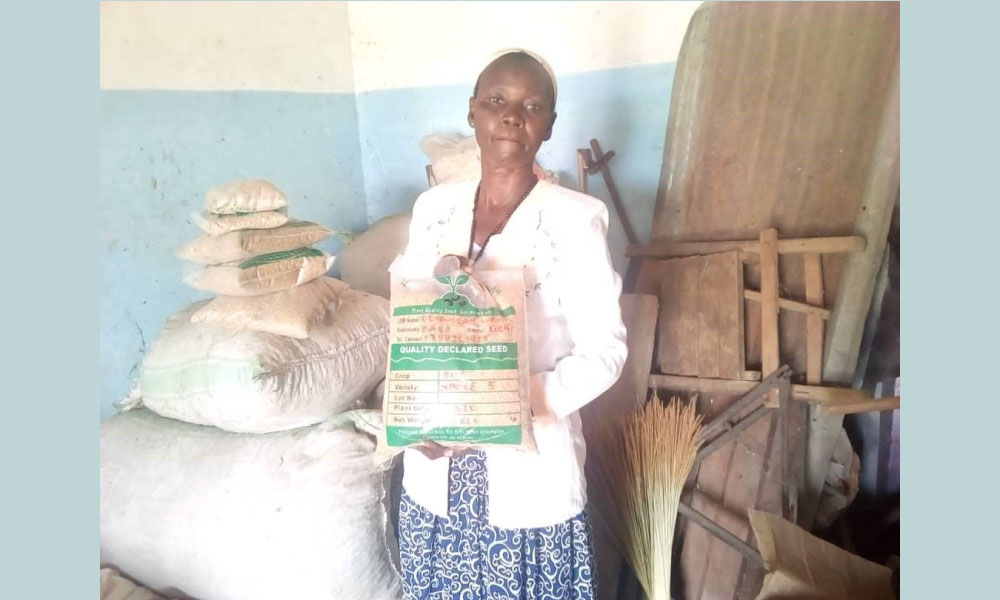
Betty Wule is a 40-year-old widow from a village in the district of Lira, Uganda, who has to provide for her five children while also taking care of five orphans from her late relatives. She has tried to make ends meet by growing beans, maize and simsim, only to realise that both the yield and price were low.
The need to provide for her extended family has sent Betty in search of a better livelihood, and COL’s Lifelong Learning for Farmers (L3F) initiative provided the necessary support. Following an initial training in income-generating activities, she began selling baked goods for income. She also learned how to grow good varieties of cassava and started selling cuttings to other farmers in the area.
Betty then brought together a group of widows to share her newly acquired knowledge and skills. The group was introduced to an L3F learning platform that facilitates farmer capacity building in local languages, free of charge. Via SMS messages sent to the platform, group members started benefiting from financial and non-financial services, including access to inputs, credit, market, insurance, and collective action.
These women got involved in growing Quality Declared Seeds, which they now sell to other farmers. Betty has also managed to open a store, where she sells different types of seeds, and build a house with rooms for rent. She is proud that all her children are able to attend good schools and she now has the means to provide for them.
“I obviously make more money now, and I have learned to save my income and plan my expenditures,” she said.
According to Dr Moses Tenywa, COL Education Specialist: Agriculture and Livelihoods, Betty’s success story exemplifies the transformative power of L3F. “By integrating social, financial and human capital, the L3F model allows learners to overcome barriers to enable sustainable and improved livelihoods,” he noted.


